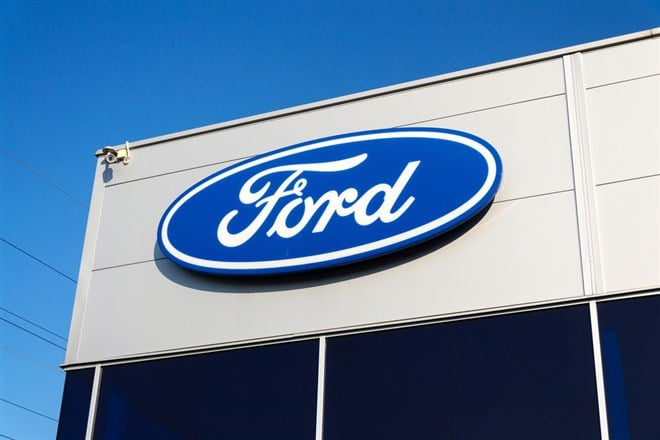
Although EV startups such as NIO (NYSE: NIO) and Mullen Automotive (NASDAQ: MULN) are grabbing attention, along with 800-pound gorilla Tesla (NASDAQ: TSLA), long-established automakers such as Ford (NYSE: F) and General Motors (NYSE: GM) are quickly ramping up EV production and marketing.
Ford said Thursday that it would invest $180 million to increase production of EV power units by 70% at a plant in the U.K. It’s part of the company’s push to bring more EVs to market and transition its products away from internal combustion engines.
While, GM’s EVs are in the spotlight for a poignant reason, as a commercial for its models including Volt, Blazer, Equinox, and Silverado is set to “Everywhere,” written by Fleetwood Mac’s Christine McVie, who died on Wednesday, Ford’s announcement is an important signal.
Ford’s move is part of the company’s European electrification plan, which is focused on zero-emission cars by 2030, followed by all vehicles five years later. The power units manufactured at the plant, in Halewood, England, will be installed in 70% of Ford EVs sold in Europe by 2026.
The plant currently makes transmissions for internal combustion vehicles but is transitioning to EV parts manufacturing. The power unit is made there replaces conventional engines and transmissions.
Slashing AI Spending
That’s a clear sign that the auto industry is changing at a rapid pace. In October, Ford said it had slashed capital spending on its artificial intelligence-powered Level 4 driver assistance systems.
In its third-quarter earnings release, the company noted that “large-scale profitable commercialization of Level 4 advanced driver assistance systems will be further out than originally anticipated.
However, it added that “Development and customer enthusiasm for benefits of L2+ and L3 ADAS warrant dialing up the company’s near-term aspirations and commitment in those areas.”
The Level 2 and Level 3 driver assist technologies typically include features such as rear-end accident avoidance and lane-centering. Cars currently on the market, even those a few years old, now utilize these technologies.
In contrast, Level 4 technologies deliver something closer to a fully self-driving experience. The AI in this case calculates when a crash may be about to occur, and corrects accordingly. It also allows hands-free driving.
Although Ford said its partner in the L4 systems, Argo AI, which also had investment from Volkswagen (OTCMKTS: VWAGY), “had been unable to attract new investors.” Ford took an impairment charge in the quarter related to Argo AI’s closure and said it would hire some of Argo AI’s engineers.
In the third-quarter earnings conference call, Ford chief financial John Lawson emphasized that the company is very bullish on the potential for driver-assisted technologies, despite not seeing “a profitable, scalable business in the L4, L5 space for at least five years. We also see that to get there, it's going to take billions of dollars.”
Ford is deploying existing capital and human resources toward the L2+ and our L3 systems. “We believe that addressable market expands our entire product portfolio from our retail customers to our commercial customers,” Lawson said.
Flat Sales Expected
Ford is slated to release its November sales figures on Friday. Industry analyst J.D. Power-LMC Automotive forecast industry-wide sales to be flat for the month, as higher vehicle prices and higher interest rates mute demand.
Within the automaker's industry group, Ford’s price performance lags European car makers, including Bayerische Motoren Werke Aktiengesellschaft (OTCMKTS: BMWYY), commonly known as BMW, as well as Stellantis (NYSE: STLA), whose brand portfolio includes Peugeot, Groupe PSA, Citroën, Opel, Dodge, and Chrysler.
Ford’s earnings and revenue track records have been erratic. Earnings growth declined in four of the past eight quarters, but there have also been quarters where increases looked good, due to easy comparisons over sluggish sales in 2020, due to pandemic restrictions.
For the full year, Wall Street sees Ford earning $1.98 per share, an increase of 25% over 2021. That’s seen declining by 11 next year, to $1.76 per share.



